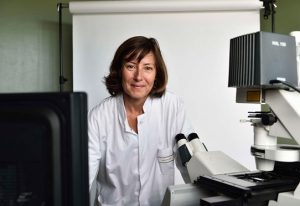
Sophie Allart
INSERM
France
EMBL Course
EMBL is committed to sharing research advances and sustaining scientific interaction throughout the coronavirus pandemic. We are delighted to announce that the course is going virtual and invite you to join us online.
This five-day comprehensive online microscopy course focuses on stimulated emission depletion microscopy (STED) and its application to biological questions.
Through lectures, tutorials, demonstrations and practical workshops, the course provides in-depth knowledge on all aspects of STED Nanoscopy.
It covers the fundamentals of STED microscopy, different technical implementations and has a strong emphasis on sample preparation – including choice of fluorophores and refractive index matching, as well as image acquisition strategies for fixed samples and living cells. Students will have the opportunity for exercises on state-of-the-art STED microscopes in which they will acquire high quality nanoscopy data.
The faculty consists of Invited guest researchers, experts from the EMBL and Leica Microsystems.
In order to adapt to different time zones, the practical sessions will be run in 2 individual corridors:
Presentations, tutorials and other activities for all participants will take place in a shared slot in-between the practicals: 13:00 – 16:00 (CEST).
This course is designed for researchers at the early stages of their career in the life sciences (e.g. pre or postdoctoral level), ideally with access to a STED microscope. The participants should have an immediate need to apply the trained skills for their biological questions. The course is strongly centered on practical aspects of STED microscopy and is therefore especially suited for people who rely on STED nanoscopy for their research.
The course will cover the entire range of skills needed to apply STED nanoscopy in biology. The following topics will be covered in lectures, tutorials as well as in practical workshops:
At the end of the course, the participants will be able to design experiments using STED microscopy, prepare high-quality microscopy samples and acquire state-of-the-art nanoscopy images.
“The course was well organised, extremely motivating and valuable. The course gave me the right tools and understanding to optimise super-resolution microscopy for my project.” – Ida Jentoft, Max Planck Institute for Biophysical Chemistry, Germany
“A very well designed course for both beginners as well as for people who have prior experience working on STED/STORM imaging. It has a good balance of theory and practical sessions, and offers a unique chance to image your own samples after the course. Overall a great experience!” – Rukmini Mukherjee, Goethe University, Germany
“My research focus is on understanding Centrioles and Centrosomes in Drosophila. I actively employ SRM techniques in my research and was just learning about STED microscopy so the course supplemented and helped in my understanding and learning of this new microscopy technique.” – Pallavi Panda, University of Cambridge, UK

INSERM
France
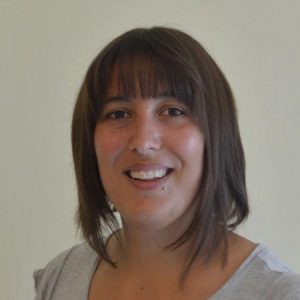
Freie Universität Berlin
Germany
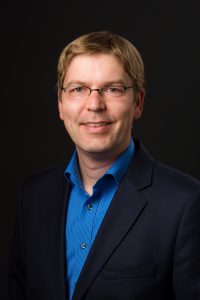
Yale School of Medicine
USA
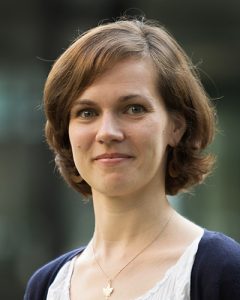
University of Zurich
Switzerland
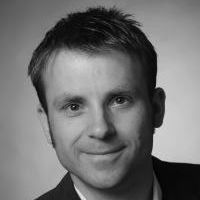
University of Oxford
UK

EMBL Heidelberg
Germany
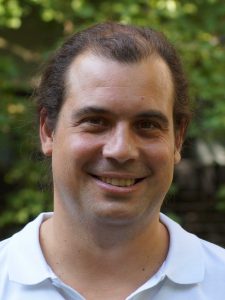
Goethe University Frankfurt
Germany
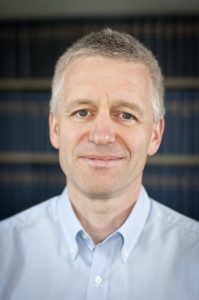
Max Planck Institute for Medical Research
Germany
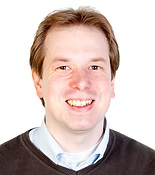
EMBL Heidelberg
Germany
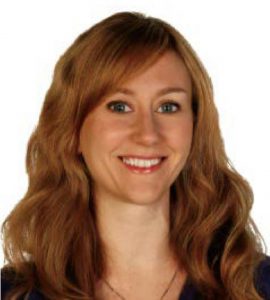
Leica Microsystems
Germany
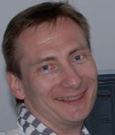
Leica Microsystems CMS GmbH
Germany
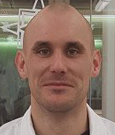
University of Cologne
Germany
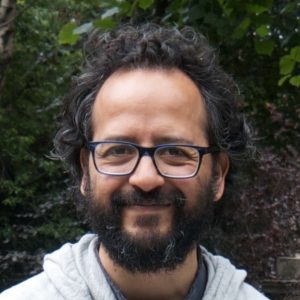
Leica Microsystems
Germany

University of Zurich
Switzerland
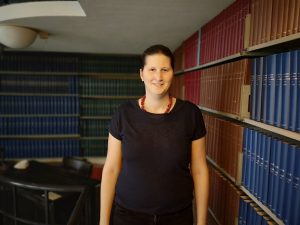
Max Planck Institute for Medical Research
Germany
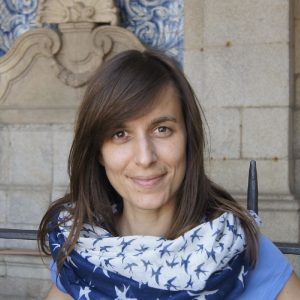
Wolfson Imaging Centre Oxford
UK
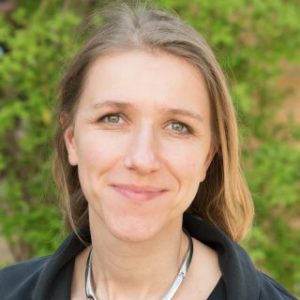
Wolfson Imaging Centre Oxford
UK

Wolfson Imaging Centre Oxford
UK

EMBL Heidelberg
Germany

Leica Microsystems
Germany

Wolfson Imaging Centre Oxford
UK

EMBL Heidelberg
Germany
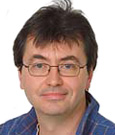
EMBL Heidelberg
Germany

Leica Microsystems CMS GmbH
Germany
Got something to say? Tweet it with #EMBLSuperResolution
To find out the equivalent time zone in your location, enter Berlin, the CEST programme time and your city into the Time Zone Converter.
| Time (CEST) | Session |
|---|---|
| 15:00-16:00 | Onboarding and technical troubleshooting |
| Time (CEST) | Session |
|---|---|
| 12:30-12:45 | Check-in |
| 12:45-13:00 | Welcome and course overview Marko Lampe – EMBL Heidelberg, Germany Ulf Schwarz – Leica Microsystems CMS GmbH, Germany |
| 13:00-14:30 | Flash talk presentations by participants |
| 14:30-14:45 | Break |
| 14:45-15:45 | Studying the structure of chromosomes in single human cell by super-resolution microscopy Jan Ellenberg – EMBL Heidelberg, Germany |
| 15:45-16:00 | Introduction to Workshops Marko Lampe – EMBL Heidelberg, Germany Ulf Schwarz – Leica Microsystems CMS GmbH, Germany |
| 16:00-16:30 | Break |
| 16:30-18:30 | Group 1: WS STED-imaging of fixed cells Jana Döhner – University of Zurich, Switzerland Marko Lampe – EMBL Heidelberg, Germany Group 2: WS STED-imaging of thick samples and tissues Luis Alvarez – Leica Microsystems, Germany Ulf Schwarz – Leica Microsystems CMS GmbH, Germany David Unnersjö-Jess – University of Cologne, Germany |
| Time (CEST) | Session |
|---|---|
| 10:00-12:00 | Group 3: WS STED-imaging of fixed cells Jana Döhner – University of Zurich, Switzerland Marko Lampe – EMBL Heidelberg, Germany Group 4: WS STED-imaging of thick samples and tissues Luis Alvarez – Leica Microsystems, Germany Ulf Schwarz – Leica Microsystems CMS GmbH, Germany David Unnersjö-Jess – University of Cologne, Germany |
| 12:00-12:45 | Break |
| 12:45-13:05 | Check-in and overview of the day |
| 13:05-13:50 | Time-Resolved STED Microscopy for better imaging: from time-gating detection to phasor analysis Giuseppe Vicidomini – Italian Institute of Technology, Italy |
| 13:50-14:00 | Break |
| 14:00-14:45 | Investigating cellular logistics with live-cell STED Francesca Bottanelli – Freie Universität Berlin, Germany |
| 14:45-15:00 | Live Q&A Session based on pre-recorded talk: super-resolution STED microscopy Christian Eggeling – University of Oxford, UK |
| 15:00-15:15 | Break |
| 15:15-16:00 | Tutorial: Sample Preparation 1 – Refractive Index Matching and Optics Marko Lampe – EMBL Heidelberg, Germany Ulf Schwarz – Leica Microsystems CMS GmbH, Germany |
| 16:00-16:30 | Break |
| 16:30-18:30 | Group 1: WS STED-imaging of thick samples and tissues Luis Alvarez – Leica Microsystems, Germany Ulf Schwarz – Leica Microsystems CMS GmbH, Germany David Unnersjö-Jess – University of Cologne, Germany Group 2: WS STED-imaging of fixed cells Jana Döhner – University of Zurich, Switzerland Marko Lampe – EMBL Heidelberg, Germany |
| Time (CEST) | Session |
|---|---|
| 10:00-12:00 | Group 3: WS STED-imaging of thick samples and tissues Luis Alvarez – Leica Microsystems, Germany Ulf Schwarz – Leica Microsystems CMS GmbH, Germany David Unnersjö-Jess – University of Cologne, Germany Group 4: WS STED-imaging of fixed cells Jana Döhner – University of Zurich, Switzerland Marko Lampe – EMBL Heidelberg, Germany |
| 12:00-12:45 | Break |
| 12:45-13:05 | Check-in and overview of the day |
| 13:05-13:50 | Multi-color, 3D and live-cell STED microscopy with exchangeable fluorophore labels Mike Heilemann – Goethe University Frankfurt, Germany |
| 13:50-14:00 | Break |
| 14:00-14:45 | New fluorescent probes for live-cell imaging Kai Johnsson – Max Planck Institute for Medical Research, Germany |
| 14:45-15:15 | Virtual Social Programme: Quiz |
| 15:15-16:00 | Tutorial: Sample Preparation 2 – Fluorophores and staining Marko Lampe – EMBL Heidelberg, Germany Ulf Schwarz – Leica Microsystems CMS GmbH, Germany |
| 16:00-16:30 | Break |
| 16:30-18:30 | Group 1: WS Live cell STED imaging Luis Alvarez – Leica Microsystems, Germany Jana Döhner – University of Zurich, Switzerland Ulf Schwarz – Leica Microsystems CMS GmbH, Germany David Unnersjö-Jess – University of Cologne, Germany Group 2: WS STED-FCS Silvia Galiani – Wolfson Imaging Centre Oxford, UK Jana Koth – Wolfson Imaging Centre Oxford, UK Christoffer Lagerholm – Wolfson Imaging Centre Oxford, UK Falk Schneider – Wolfson Imaging Centre Oxford, UK |
| Time (CEST) | Session |
|---|---|
| 10:00-12:00 | Group 3: WS Live cell STED imaging Luis Alvarez – Leica Microsystems, Germany Jana Döhner – University of Zurich, Switzerland Ulf Schwarz – Leica Microsystems CMS GmbH, Germany David Unnersjö-Jess – University of Cologne, Germany Group 4: WS STED-FCS Silvia Galiani – Wolfson Imaging Centre Oxford, UK Jana Koth – Wolfson Imaging Centre Oxford, UK Christoffer Lagerholm – Wolfson Imaging Centre Oxford, UK Falk Schneider – Wolfson Imaging Centre Oxford, UK |
| 12:00-12:45 | Break |
| 12:45-13:05 | Check-in and overview of the day |
| 13:05-13:30 | Contextual super-resolution imaging – Fine structure preservation for light and electron microscopy Jana Döhner – University of Zurich, Switzerland |
| 13:30-13:55 | Studying the nanoscale architecture of the kidney filter using high- and super-resolved microscopy David Unnersjö-Jess – University of Cologne, Germany |
| 13:55-14:00 | Break |
| 14:00-14:45 | TauSTED: pushing STED beyond its limits with a lifetime Julia Roberti – Leica Microsystems, Germany |
| 14:45-15:15 | Virtual Social Programme: Speed networking |
| 15:15-16:00 | Tutorial: Discussion of selected participants projects and experimental planning Marko Lampe – EMBL Heidelberg, Germany Ulf Schwarz – Leica Microsystems CMS GmbH, Germany |
| 16:00-16:30 | Break |
| 16:30-18:30 | Group 1: WS STED-FCS Silvia Galiani – Wolfson Imaging Centre Oxford, UK Jana Koth – Wolfson Imaging Centre Oxford, UK Christoffer Lagerholm – Wolfson Imaging Centre Oxford, UK Falk Schneider – Wolfson Imaging Centre Oxford, UK Group 2: WS Live-cell STED imaging Luis Alvarez – Leica Microsystems, Germany Jana Döhner – University of Zurich, Switzerland Ulf Schwarz – Leica Microsystems CMS GmbH, Germany David Unnersjö-Jess – University of Cologne, Germany |
| Time (CEST) | Session |
|---|---|
| 10:00-12:00 | Group 3: WS STED-FCS Silvia Galiani – Wolfson Imaging Centre Oxford, UK Jana Koth – Wolfson Imaging Centre Oxford, UK Christoffer Lagerholm – Wolfson Imaging Centre Oxford, UK Falk Schneider – Wolfson Imaging Centre Oxford, UK Group 4: WS Live cell STED imaging Luis Alvarez – Leica Microsystems, Germany Jana Döhner – University of Zurich, Switzerland Ulf Schwarz – Leica Microsystems CMS GmbH, Germany David Unnersjö-Jess – University of Cologne, Germany |
| 12:00-12:45 | Break |
| 12:45-13:05 | Check-in and overview of the day |
| 13:05-13:50 | in-vivo 3D STED nanoscopy and adding structural context by pan-Expansion Microscopy Joerg Bewersdorf – Yale school of medicine, USA Marko Lampe – EMBL Heidelberg, Germany |
| 13:50-14:00 | Break |
| 14:00-15:00 | Virtual Social Programme: Bar Mixer |
| 15:00-15:15 | Break |
| 15:15-16:00 | Live Q&A Session based on pre-recorded talk and panel discussion with trainers Sophie Allart – INSERM, France Marko Lampe – EMBL Heidelberg, Germany Ulf Schwarz – Leica Microsystems CMS GmbH, Germany |
| 16:00-16:20 | Closing remarks, comments, farewell and group photo |
The course is limited to 20 participants. For selection purposes, please note that your application will not be considered without a letter of motivation.
Registration Fees (include admission and all course materials):
| Academia | 125 Euro |
| PhD Student | 125 Euro |
| Industry | 520 Euro |
The registration fee should be paid only after acceptance to the course. The results will be announced approximately 2-3 weeks after the application deadline.
After you have logged in and successfully registered, you will receive an email asking you to submit your motivation letter. Click on the link provided and enter your motivation letter in the text box provided. Alternatively you can submit your motivation letter by clicking on the link on the confirmation page directly after registering.
Instructions
Please note:
Motivation letter length: The maximum limit of 2000 characters (ca. 200 words) refers to manually typed text (spaces included).
Free field text length: The maximum characters for your answers in the free field text boxes is 255 (spaces included). Text only: If you copy-paste the text, hidden formatting might still be included and you will be informed that your text exceeds the character limit. We recommend either:
Symbols: If you have special symbols in your text make sure you are using Unicode characters, otherwise these will not be recognised by the tool.
For further information about registration and motivation letter submission please refer to the FAQ page.
All academic and student registrants are invited to apply for a registration fee waiver, provided by the EMBL Advanced Training Centre Corporate Partnership Programme and EMBO. The registration fee waiver covers the registration sum that you have paid to attend the meeting. Conference participants are not required to pre-pay the registration fee to be selected for a fee waiver for a virtual meeting. If you have already paid the registration fee and are awarded a fee waiver, it will be reimbursed after the meeting. Course participants are required to pay the course fee in advance, which will then be reimbursed after the recipient has attended the course.
For participants and speakers with childcare responsibilities there is the possibility to apply for a grant, provided by the EMBL Advanced Training Centre Corporate Partnership Programme and EMBO, to offset childcare costs incurred when participating at a virtual event. Eligible costs include fees for a babysitter or childcare facility or travel costs for a care giver. Please note that priority will be given to early stage researchers. Costs will be reimbursed after the meeting only once a reimbursement form and original receipts have been received. In order to apply for this grant, you must be registered by the abstract submission deadline.
Applies to selected courses only. Availability will be indicated during the abstract or motivation letter submission process.
This grant covers costs related to your attendance to the course (registration, travel and accommodation costs). The grant is restricted to PhD students and postdocs who conduct basic biomedical research.
Whether you are eligible to apply for a travel grant, depends on when you received your university entrance qualification (e.g. Abitur, A-Levels, High School Diploma, Final State Examination):
– for PhD and MD students, as well as graduates, the university entrance qualification must not have been obtained more than 11 years ago at the time of the envisaged course
– for postdocs, the university entrance qualification must not have been obtained more than 13 years ago at the time of the envisaged course
Applications for financial assistance can be submitted via the submission portal* (for the submission of abstracts for conferences or the submission of motivation letters for courses) by completing the Financial Assistance Application Section (underneath the section for entering abstract/motivation letter information). The link to the portal can be found in the registration confirmation email that you will receive after registering for the conference or course.
*For some events, applications for Childcare Grants will still be done by email. Information about the grant will be sent out shortly after the abstract/motivation letter deadline. Please contact the event Conference Officer if you have any questions.
The scientific organisers will select the recipients of registration fee waivers during the abstract selection process for conferences and the participant selection process for courses. Results will be announced approximately 3 – 4 weeks before the event start date. Selection results do not impact your admission to the meeting. Registration fee waiver selection is based on your current work or study location, your motivation for applying, the reasons for needing financial support and the impact this event will have on your career. Childcare grants are allocated based on career stage, with priority given to early stage researchers.
Check our list of external funding opportunities, and information on attending a conference as an event reporter.
For further information about financial assistance please refer to the FAQ page.
The EMBL eCampus learning platform will be used to collaborate, communicate and network with all of the course participants. All participants will receive information on how to join shortly before the course. We recommend using Chrome, Safari or Mozilla Firefox browsers for eCampus.
Zoom will be used during the course for the live discussion and feedback sessions and the course practicals and networking. More information will be provided closer to the start of the course.
Please do:
Please don’t:
Additional information can be found in our Code of Conduct.
It is important to stay healthy and move around, especially when you are attending an event virtually. We have put together a few coffee break stretches and yoga videos on the event platform for you to enjoy during the event.
Questions during and after the talks can be asked in live streaming platform. The chair moderates the questions and shares them with the speaker. If time runs out or you think of a question later, you can use the EMBL eCampus forum to ask your questions in the dedicated session channels or via direct message.
The programme is planned based on Central European Time (Berlin, Amsterdam, Paris) unless otherwise stated. As many virtual participants are attending from around the world, we do our best to accommodate as many time zones as possible when creating the programme. Please take your time zone into consideration when planning your attendance.
This course is organised in cooperation with Leica Microsystems.
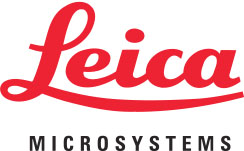
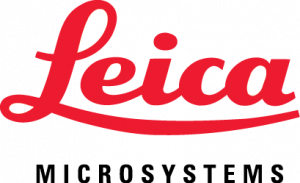
Date: 12 - 16 Jul 2021
Location: Virtual
Deadline(s):
Application: Closed
Organisers:
Contact: Inna Boesselmann